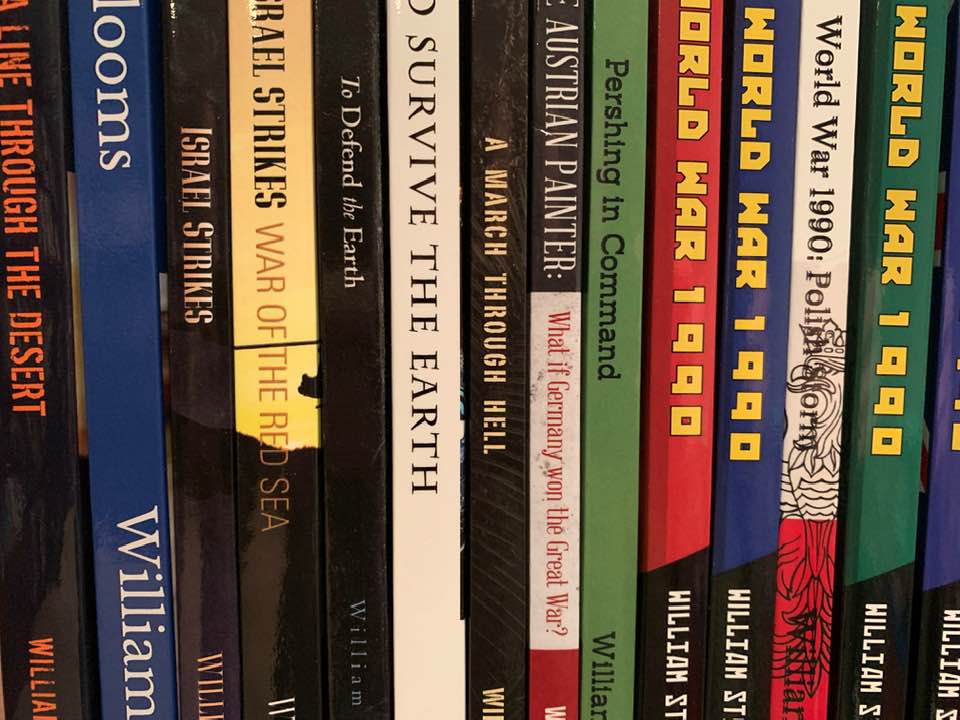Military Heritage, a magazine it will be noted we both write for and advertise with, runs a deeply personal to me piece on Patton and his dyslexia:
Historians will inevitably examine the past through the lens of their own time; likewise, historical figures present themselves to their contemporaries according to the knowledge and prejudices of their epoch. Patton, who was always concerned about shaping his public image according to his own lights, did not care to call attention to his dyslexia; nor did those who wrote about his swashbuckling exploits as a tank commander in the aftermath of World War II care to investigate the subject, despite such red flags as the frequent symptomatic idiosyncrasies in his spelling and punctuation. Given the state of medical science in the 1940s and the postwar era, Patton could not have been aware that he may have also suffered from an affliction known today as attention deficit disorder (ADD), which afflicts many dyslexics; nor could historians have identified the condition until recently. Even the importance of Patton’s early family life, which led him to valorize war and model himself as the heir of his heroic Confederate ancestors, was neglected until recently.SNIP
Other ADD symptoms include poor impulse control, extreme mood swings in response to events, and short excessive tempers, all of which Patton displayed as a commanding officer, sometimes notoriously, as with his infamous slapping incidents during World War II in which he was accused of abusing enlisted men. The frustrations experienced by a person dealing with either dyslexia or ADD can be overwhelming and can often lead to serious self-doubt, feelings of inadequacy, bouts of uncontrollable anger, and emotional hypersensitivity.
Dyslexia, which is often characterized by difficulty reading and by the transposition of letters or numbers, is considered to be a learning disorder. Having dyslexia, however, does not mean that a person lacks intelligence. Quite the contrary, many dyslexics are extremely intelligent and struggle mightily with the symptoms of the disorder. The dyslexic often has a different or unique mind-set, is often gifted and productive, but learns and perceives in a way different from others.
Both dyslexia and ADD have a genetic component. They are hereditary and run in families. In this light, perhaps George Patton’s genealogy is more important that even he imagined.SNIP
Dyslexia is not simply a matter of reversing letters or numbers but is a complicated disorder whose symptoms include hyperactivity, obsessiveness, mood swings, difficulty in concentrating, impulsiveness, and compulsiveness. Because of their effort to overcome difficulty in reading and writing, dyslexics can be driven by a compulsion to succeed. Yet, they often harbor feelings of inferiority. Virtually every common symptom of dyslexia can be found in the adult Patton. “I am either very lazy or very stupid or both for it is beastly hard for me to learn,” he told his future wife, Beatrice Banning Ayer, while still a cadet at West Point. This was despite his prodigious intellectual powers and ability to recall enormous bodies of text and information.
See that last excerpt there. Yes, oh god, yes. Every last word of it. It's kind of like that Agent K line from Men in Black, 'Think of a cockroach with unlimited strength, a massive inferiority complex and a real short temper.'
I was dyslexic. I was ADD. Or am, really. Family lore has it I didn't sit still until I was four years old and my parents took me to see Star Wars.
Let me vouch for a couple of things. The mood swings, the bluster, [this blog is mostly bluster-Ed]. My father had it, he thinks after seeing me diagnosed, about 1981, and it's pretty obvious my grandfather had it too.
This article goes on to talk about Patton's somewhat unusual upbringing with a doting, suffocating, ever present aunt. Let's just say I grew up with doting, suffocating relatives and it does weird things to the family dynamic. When I was 14 and Blue Mountain Middle School packed me off to a shrink [I knew it?!-Ed] half the time he wanted to interview my dad about his childhood.
The dyslexia put me behind the class till about 13 or 14. I've always credited a trio of novels I read, 10 pages at a time, during the summer of 1986.
But the dyslexia wasn't gone. Not even close...

No comments:
Post a Comment